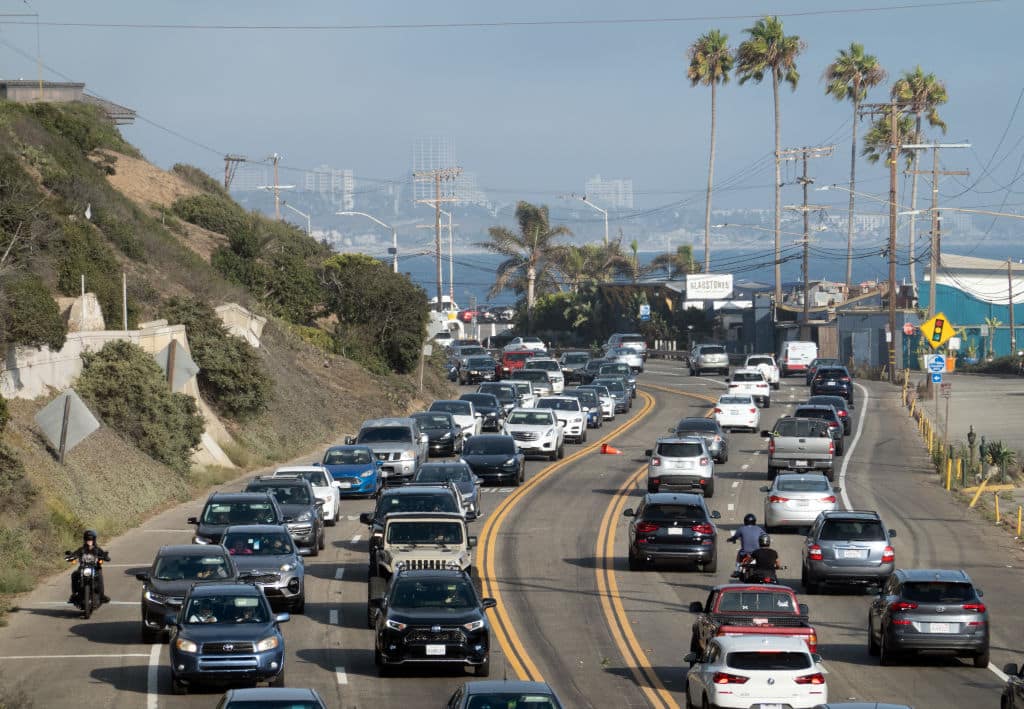California Asks EV Owners to Limit Charging During Labor Day Weekend Heat Wave

 Why you can trust us
Why you can trust us
Founded in 2005 as an Ohio-based environmental newspaper, EcoWatch is a digital platform dedicated to publishing quality, science-based content on environmental issues, causes, and solutions.
It’s going to be a scorcher in California over the long Labor Day weekend, with temperatures expected to be over 10°F above normal. Already this week, temperatures in Los Angeles soared above 100°F, with worse temperatures to come. In response, officials are asking Californians to reduce energy as much as possible to avoid blackouts, including for EV owners to avoid or limit charging during one of the peak travel times of the year.
The California Independent System Operator, which manages California’s power grid, has issued Flex Alerts throughout the week to encourage everyone to reduce their energy demand, and more alerts are expected to post through the weekend.
“During a Flex Alert, consumers are urged to reduce energy use from 4-9 p.m. when the system is most stressed because demand for electricity remains high and there is less solar energy available,” the organization said, as reported by NPR. “The top three conservation actions are to set thermostats to 78 degrees or higher, avoid using large appliances and charging electric vehicles, and turn off unnecessary lights.”
The alert comes just one week after the state announced a ban on new gasoline sales by 2035 and just ahead of a three-day weekend, when many people are expected to hit the road.

While critics have complained about the limits on vehicle charging, especially amid the newly announced ban on sales of gas cars, Erin Mellon, spokesperson for Gov. Gavin Newsom, explained that the Flex Alert just asks that customers charge their vehicles outside of the peak times of 4 to 9 p.m.
The New York Times reported that experts have acknowledged the challenges of transitioning more drivers to using electric vehicles, including upgrading the power grid to support charging demands. But even outside of a heat wave, they say many EV owners don’t charge during those peak times.
“Nobody charges during those times anyway,” said Elaine Borseth, president of the Electric Vehicle Association. “It costs more.”
Borseth explained to The New York Times that she typically charges her own electric vehicle for around 24 cents per kilowatt, but during those peak times, the price can increase to over 50 cents per kW.
The heat wave is expected to impact much of the western U.S., meaning California will likely not be able to import energy from other grids to meet high demand. The National Weather Service expects “dangerous and record-breaking heat” over Labor Day Weekend, and there are currently Excessive Heat Warnings and Heat Advisories throughout California, Oregon, Washington, Nevada and Idaho.
Subscribe to get exclusive updates in our daily newsletter!
By signing up, you agree to the Terms of Use and Privacy Policy & to receive electronic communications from EcoWatch Media Group, which may include marketing promotions, advertisements and sponsored content.

 233k
233k  41k
41k  Subscribe
Subscribe 



